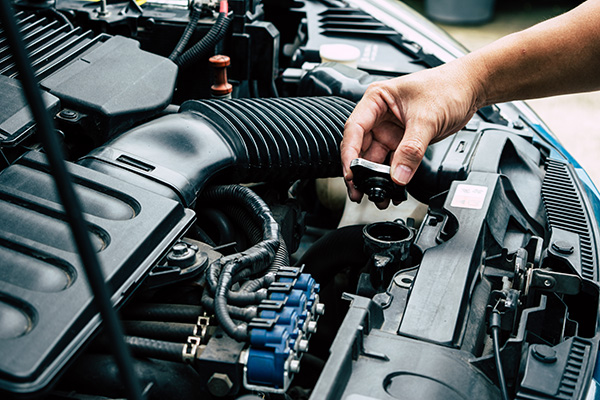
The radiator cap might seem like a small, simple part, but it is critical in keeping your engine cool. It’s responsible for maintaining pressure in the cooling system, preventing coolant from boiling, and helping coolant flow between the radiator and the overflow tank. When it starts to fail, your car may show symptoms that are easy to miss at first but can lead to overheating or coolant loss if ignored.
What the Radiator Cap Actually Does
Your car's cooling system operates under pressure to raise the boiling point of the coolant. The radiator cap is designed to hold that pressure, usually between 13 and 16 pounds per square inch, depending on the vehicle. When pressure builds to the set limit, the cap allows a small amount of coolant to flow into the overflow reservoir.
As the system cools down, a vacuum forms. The radiator cap has a second valve that opens to allow coolant to flow back into the radiator from the reservoir. This process helps maintain proper coolant levels and keeps air out of the system. If either function fails, pressure can build too high or coolant can leak out instead of cycling properly.
Signs Your Radiator Cap May Be Failing
A bad radiator cap doesn’t always leak visibly, and the symptoms can be subtle. But there are some common signs that suggest the cap is no longer sealing or regulating pressure the way it should:
- Coolant loss without visible leaks: If your reservoir keeps running low and you don’t see any puddles, coolant may be venting as vapor due to pressure loss.
- Overheating: A cap that can’t hold pressure allows coolant to boil at a lower temperature. This can cause the engine to overheat during normal driving.
- Collapsed radiator hose: A stuck cap can create vacuum conditions that collapse the upper radiator hose after the engine cools down.
- Coolant overflow: If the cap doesn't seal tightly, coolant may bubble out into the reservoir or onto the ground even when the engine isn’t overheating.
- Air in the cooling system: A faulty seal may allow air to enter the system, creating pockets that affect coolant flow and temperature regulation.
These symptoms can come and go, which makes diagnosis tricky. That’s why it’s important to check the radiator cap if your cooling system seems off, but no obvious leak is found.
How to Inspect or Test the Radiator Cap
The easiest thing to look for is visible damage. If the rubber gasket on the underside is cracked, swollen, or missing, the cap can't hold pressure correctly. Corrosion or buildup around the cap or filler neck may also prevent a good seal.
Shops that work on cooling systems can test the cap using a pressure tool. This allows the technician to verify whether the cap holds the correct pressure or releases too early. It's a quick and inexpensive test that can help rule out the cap before looking at other parts of the cooling system.
Why It’s Important Not to Ignore a Failing Cap
It’s tempting to overlook the radiator cap, especially since it's small and inexpensive. But a bad cap can lead to overheating, air pockets in the cooling system, or even engine damage if the problem goes unresolved. It’s one of the first things worth checking any time a vehicle shows signs of running hot or losing coolant.
Over time, even a good radiator cap can wear out from constant heat and pressure cycles. If your vehicle is more than five years old and has never had the cap replaced, it may be worth changing it as a preventive measure.
Cooling System Help in Sarasota to Keep Your Engine Safe
Your engine depends on consistent coolant flow and pressure. When something interrupts that balance, temperatures can rise quickly. The radiator cap may not be the most complex part, but it’s a vital piece of the puzzle when diagnosing overheating or coolant loss. If you're dealing with temperature issues or can’t find the source of a coolant problem, it’s smart to have the entire cooling system, including the cap, inspected.
Get a Full Cooling System Check at Kaufman’s Auto Repair in Sarasota, FL
At Kaufman’s Auto Repair, we help drivers stay ahead of cooling system problems before they become costly repairs. If you’re losing coolant, seeing temperature spikes, or just want peace of mind, our team can pressure test the system, inspect the radiator cap, and make sure your engine stays protected. Schedule your visit today.